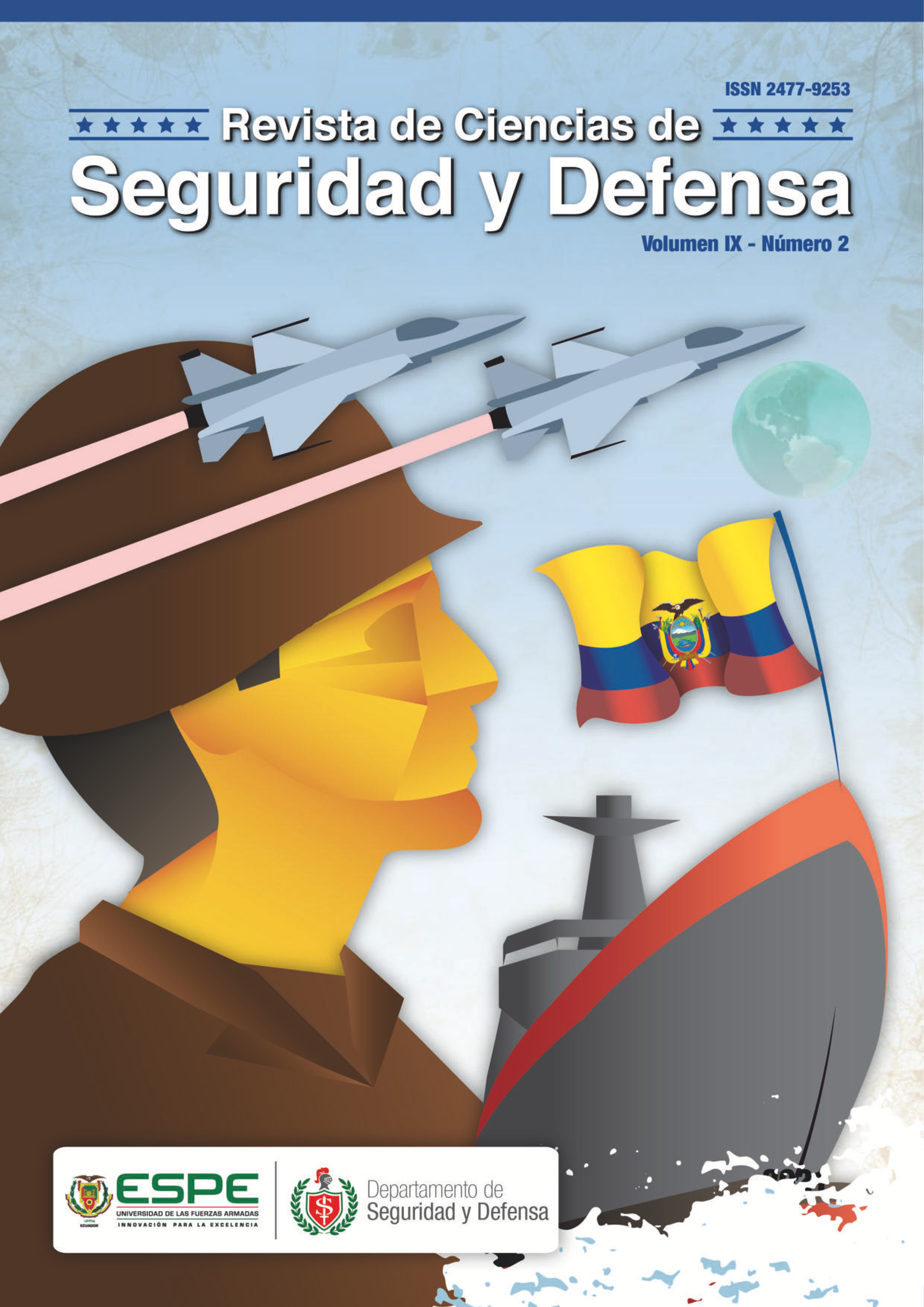Terrorism, penitentiary centers and the role of armed forces in state security
Main Article Content
Abstract
Violence in Ecuador has experienced an exponential increase, mainly attributed to the impact of drug trafficking in the region. The consequences of this phenomenon show the inability of the institutions responsible for citizen security to control this crisis, especially in provinces of the Litoral region, where transnational organized crime groups actively operate. Penitentiary centers, spaces that represent state power, have not escaped this problem, facing activities outside the law such as corruption, arms trafficking and internal conflicts, among others. The prison situation in Ecuador is characterized by a serious violation of human rights, marked by unacceptable conditions and coexistence of fear, threats and death. A critical analysis is proposed with approaches applicable at the regional level, demanding interagency interventions aligned with international human rights standards. Effective collaboration between the Armed Forces and other agencies is addressed, highlighting the importance of developing specific military capabilities and establishing an adequate legal framework. The relationship between the employment of the Armed Forces and the management of prison security is examined to evaluate the impact on the prevention of violent incidents, the management of contraband and the personal security of all those who are part of the administration, security and inmates. within the prison system. With this, the relevance of understanding how the Armed Forces can optimize resources and capabilities in an internal security environment with resource limitations and strict compliance with the observance and respect of human rights is highlighted.
Downloads
Article Details

This work is licensed under a Creative Commons Attribution-NonCommercial 4.0 International License.
Politicas de acceso y reuso
El autor, conserva el derecho a ser propietario intelectual del artículo y podría solicitar al Director de la Revista el uso posterior de este trabajo.
El lector, tiene derecho a enviar los comentarios que crea conveniente sobre los artículos de la revista, y a participar en los foros que se organicen en torno de los artículos de la revista.

